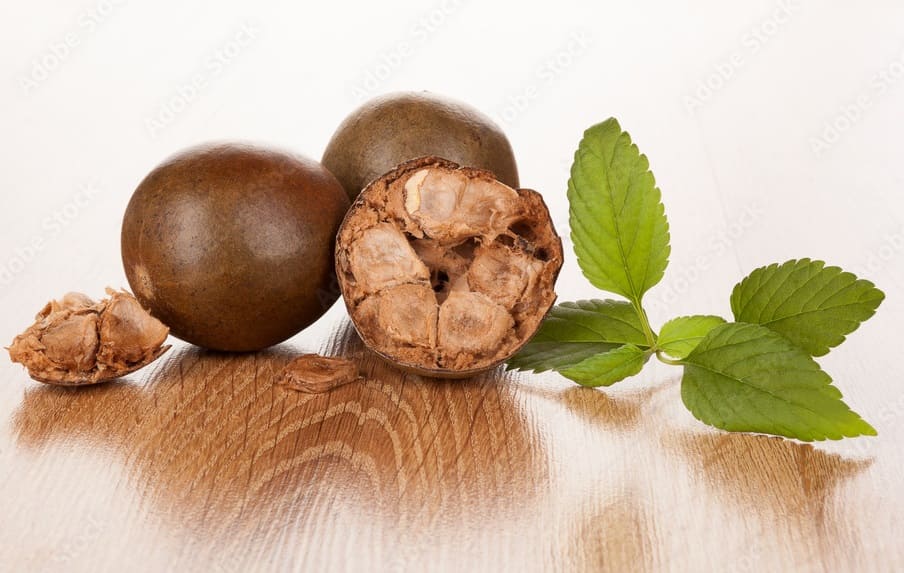If you’re like many of us, you’ve probably been on the lookout for healthier alternatives to sugar. Enter monk fruit (also known as Luo Han Guo or Swingle Fruit) an incredible little sweetener that’s gaining popularity for all the right reasons. Whether you’re trying to shed a few pounds, keep your blood sugar in check, or simply enjoy your favorite treats without the guilt, monk fruit might just be the answer you’ve been searching for. So, let’s explore the remarkable health benefits of monk fruit and discover how this sweet gem can brighten up your life!
What is Monk Fruit?
Monk fruit, scientifically known as Siraitia grosvenorii, is a small green gourd native to southern China. Its sweetness comes from mogrosides, natural compounds that can be up to 200-300 times sweeter than sugar! This means that even a tiny amount can provide a significant sweetness without the calories that come from traditional sugar.
10 Surprising Health Benefits of Monk Fruit
Monk fruit has gained popularity as a natural sweetener due to its unique health benefits. Here’s a look at some of the key health benefits of monk fruit:
- Zero Calories: One of the biggest advantages of monk fruit is that it contains zero calories. This makes it a fantastic option for those looking to reduce their caloric intake while still enjoying sweet flavors.
- Blood Sugar-Friendly: Unlike sugar, monk fruit does not spike blood sugar levels. This makes it a great choice for diabetics or anyone trying to manage their blood sugar.
- Antioxidant Properties: Monk fruit is rich in antioxidants, particularly mogrosides, which can help combat oxidative stress and may reduce the risk of chronic diseases.
- Natural Alternative: Monk fruit is a natural sweetener without any artificial additives, making it a healthier choice compared to synthetic sweeteners.
- Supports Weight Loss: By substituting luo han guo for sugar in your diet, you can satisfy your sweet tooth without the added calories, which can help with weight management.
- Anti-Inflammatory Properties: Some studies suggest that monk fruit may have anti-inflammatory effects, which can help reduce inflammation in the body and lower the risk of conditions like heart disease and arthritis.
- Potential Antimicrobial Effects: Preliminary research indicates that monk fruit may have antimicrobial properties, which can help combat certain pathogens and promote overall health.
- Digestive Health: Monk fruit is a natural source of fiber, which is essential for digestive health. While the sweetener form may not contain significant fiber, the fruit itself contributes to a healthy gut.
- May Support Heart Health: The absence of sugar and calories can help lower the risk of heart disease. Additionally, the antioxidant content may contribute to heart health by reducing oxidative stress.
- Versatile Usage: Monk fruit can be used in various recipes, from baking to beverages, making it a versatile option for those looking to sweeten their foods naturally.
How to Use Monk Fruit in Your Everyday Life
Monk fruit comes in various forms, so you can easily find the perfect fit for your lifestyle:
- Liquid Extract: Great for drizzling over pancakes or adding to your morning coffee.
- Granulated Form: Perfect for baking—just think of those delicious cookies or cakes!
- Powder: Awesome for smoothies or sprinkling on yogurt for a healthy snack.
The best part? You can use monk fruit in most recipes! A good rule of thumb is to use about a quarter of the amount of sugar the recipe calls for since it’s much sweeter.
Cooking and Baking with Monk Fruit
When it comes to the kitchen, monk fruit is a game changer. Here are some fun ways to incorporate it:
- Beverages: Sweeten your tea, coffee, or even homemade lemonade with monk fruit for a refreshing twist.
- Baking: Substitute monk fruit for sugar in your favorite baked goods. Just remember to tweak the liquid ingredients since Luo Han Guo doesn’t provide the same bulk as sugar.
- Savory Dishes: Yes, you can get creative! Add monk fruit to marinades or sauces to enhance flavors without the added calories.
Things to Consider
While monk fruit is generally safe for most people, it’s always wise to use it in moderation. Some monk fruit products may contain sugar alcohols, which can cause digestive discomfort if consumed in large quantities. So, always check the label and choose wisely.
Conclusion:
Monk fruit is more than just a sweetener; it’s a fantastic alternative that lets you enjoy sweetness without the downsides of traditional sugar. Whether you’re aiming to cut back on sugar for health reasons or simply want to satisfy your cravings guilt-free, luo han guo could be the sweet solution you’ve been searching for.
So why not give monk fruit a try? Your taste buds (and your waistline) will likely thank you! Happy sweetening!
Also Read:
